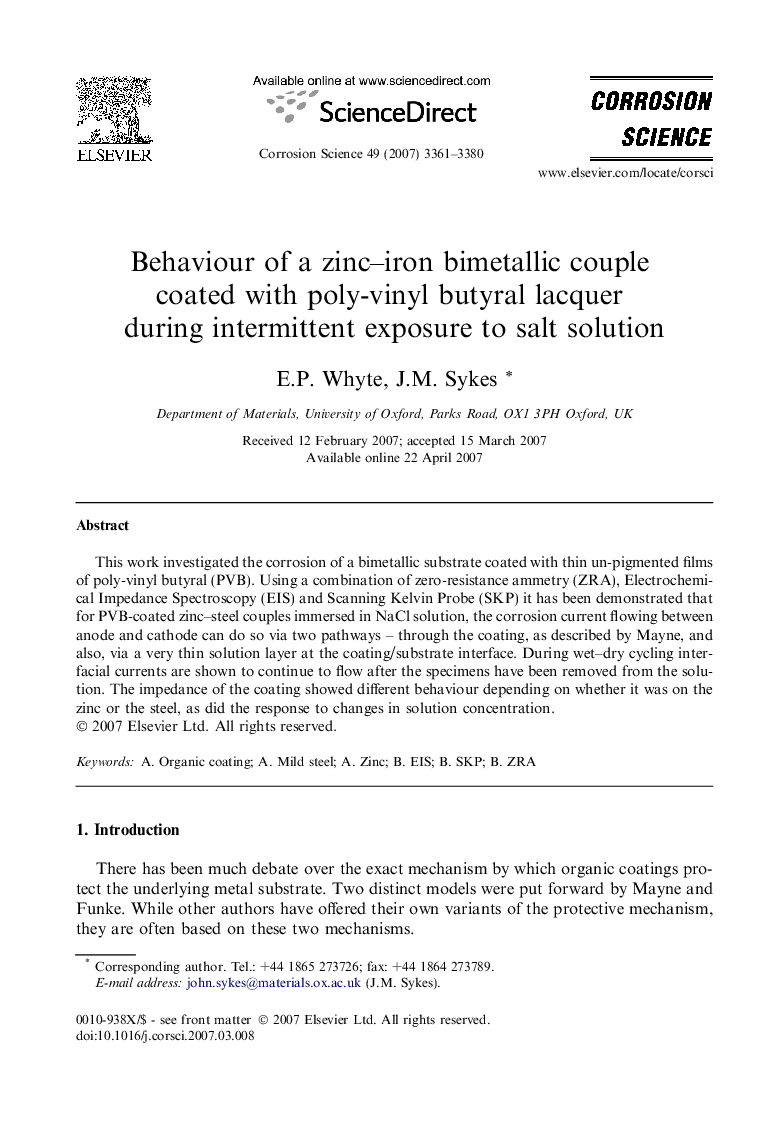| Article ID | Journal | Published Year | Pages | File Type |
|---|---|---|---|---|
| 1471904 | Corrosion Science | 2007 | 20 Pages |
Abstract
This work investigated the corrosion of a bimetallic substrate coated with thin un-pigmented films of poly-vinyl butyral (PVB). Using a combination of zero-resistance ammetry (ZRA), Electrochemical Impedance Spectroscopy (EIS) and Scanning Kelvin Probe (SKP) it has been demonstrated that for PVB-coated zinc-steel couples immersed in NaCl solution, the corrosion current flowing between anode and cathode can do so via two pathways - through the coating, as described by Mayne, and also, via a very thin solution layer at the coating/substrate interface. During wet-dry cycling interfacial currents are shown to continue to flow after the specimens have been removed from the solution. The impedance of the coating showed different behaviour depending on whether it was on the zinc or the steel, as did the response to changes in solution concentration.
Related Topics
Physical Sciences and Engineering
Materials Science
Ceramics and Composites
Authors
E.P. Whyte, J.M. Sykes,
